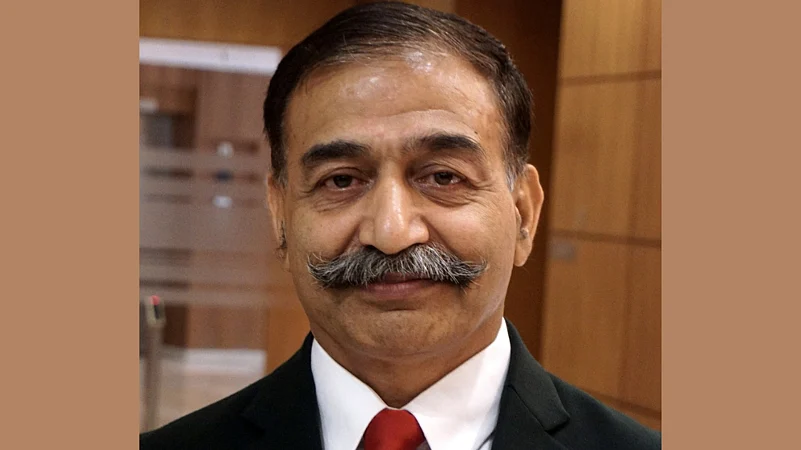For India to achieve a 10 per cent share in the global space market from the current 2 per cent share, the primary focus of the country should be on applications like earth observation, and satellite communication, believes Lt Gen AK Bhatt (Retd), Director General of the Indian Space Association (ISpA).
Speaking about the recent issue about satcom spectrum, Bhatt believes that the government’s decision to allocate space spectrum administratively, not through auctions is a positive move. This is because globally, space spectrum is allocated administratively, allowing multiple users to access the same spectrum. In an interaction with Outlook Business on the sidelines of the India Digital Summit, Bhatt talked about regulatory frameworks to support fair satellite spectrum pricing, the association’s expectation from the upcoming Budget, the recent trend toward miniaturization of satellites and more. Edited Excerpts.
Recently, the Indian Space Association was vocal about pricing SATCOM spectrum. Can you tell us more about that?
When the telecom bill was introduced last year, the government made a landmark decision regarding SATCOM. They announced that space spectrum would be allocated administratively, not through auctions, which is a positive step because globally, spectrum for space is given administratively. This is because the same spectrum can be used by multiple users.
What is your stance on how the spectrum should be priced?
There were two proposals for charging for spectrum: AGR (a percentage of gross revenue) or by megahertz. We believe that, given the nascent stage of India’s space industry, the minimum AGR model should be adopted with a reduced percentage, ideally 1 to 2 percent, to foster growth rather than treat it as a commercial opportunity.
How should regulatory frameworks support fair satellite spectrum pricing?
Once the Telecom Regulatory Authority of India (TRAI) presents its proposal, we will see how they plan to price the spectrum. There have been concerns from terrestrial companies about the cost difference, but SATCOM is meant for remote areas and disaster management, not urban regions where terrestrial communication thrives.
Could you discuss India’s progress with small satellites and the potential to compete with global players like SpaceX?
Globally, there’s a trend toward miniaturization of satellites. In India, we have the capability to manufacture small satellites for both communication and Earth observation. While Starlink has launched 6,000 satellites, and OneWeb has 640, India’s smaller scale and capital requirements make it challenging to compete directly with these large players. However, India’s focus on small satellites is promising.
India aims to capture a 10% share of the global space market. What areas should India focus on to achieve this?
The primary focus areas should be applications like Earth observation, satellite communication, and P&T (positioning, navigation, and timing). I can share specific growth expectations for these sectors, but applications will drive the largest growth.
With the budget approaching, what are your expectations for the space tech sector?
Last year, we were happy with the government’s announcement of a VC fund for the space sector. For this year, we are hoping for PLI incentives, lower GST rates, import incentives, and tax holidays for manufacturing.
How is India performing in space tech compared to other nations?
India is part of a niche group of nations capable of launching rockets, building satellites, performing space docking, and even landing on the moon. Our scientists have developed these critical capabilities, and we must leverage them for global growth.
How can space tech startups grow and become more mainstream?
Space tech startups can grow by focusing on practical applications. For example, space can be used in agriculture to improve efficiency, in road tolling to monitor vehicles, and in fisheries, sustainability, and biodiversity. Awareness among users about the benefits of space technology is crucial.
What areas should the government focus on to uplift the space sector?
The government has shown great support at the highest levels, and we expect this to continue. We hope they will continue to support the space sector, helping us realize our full potential.




























